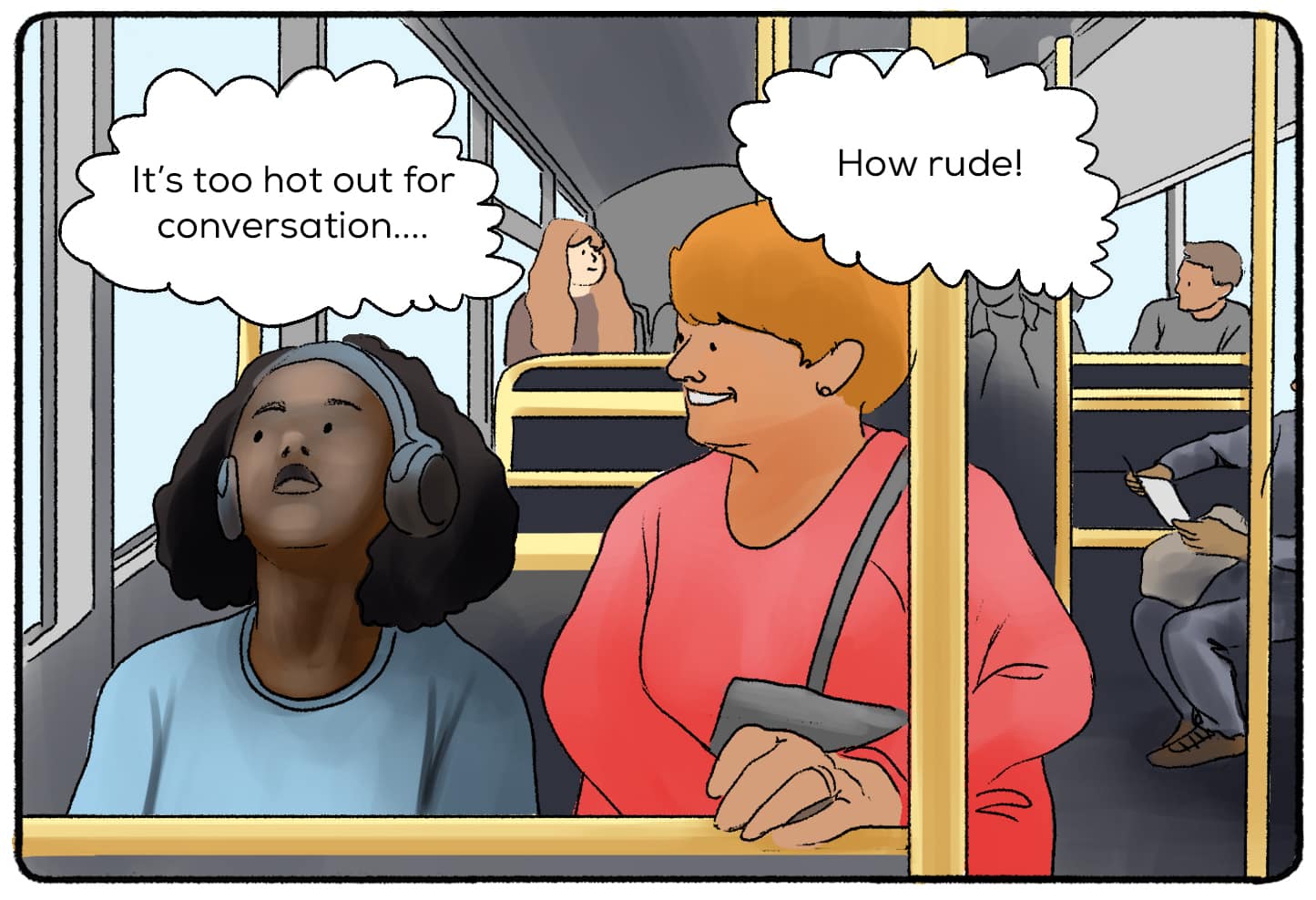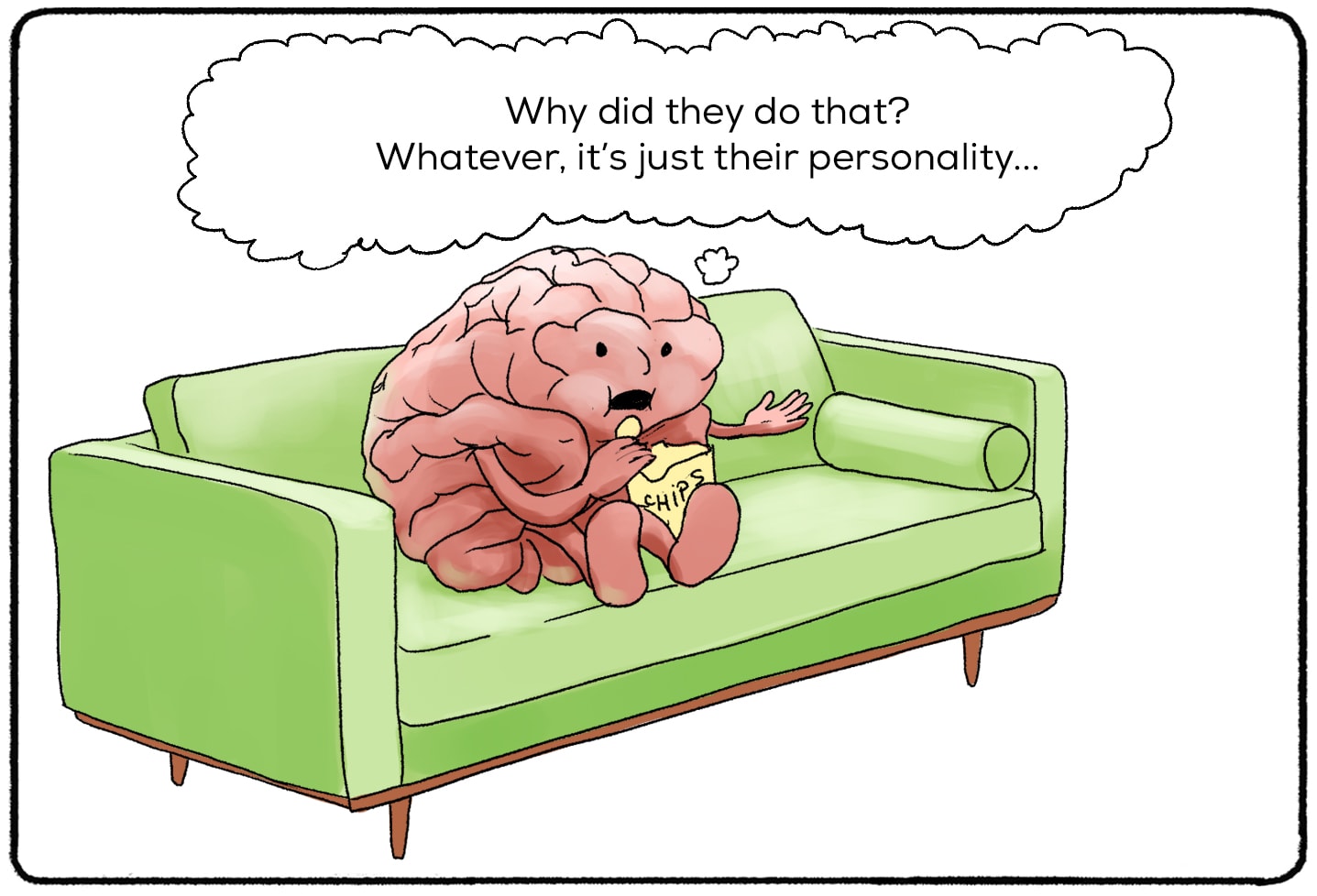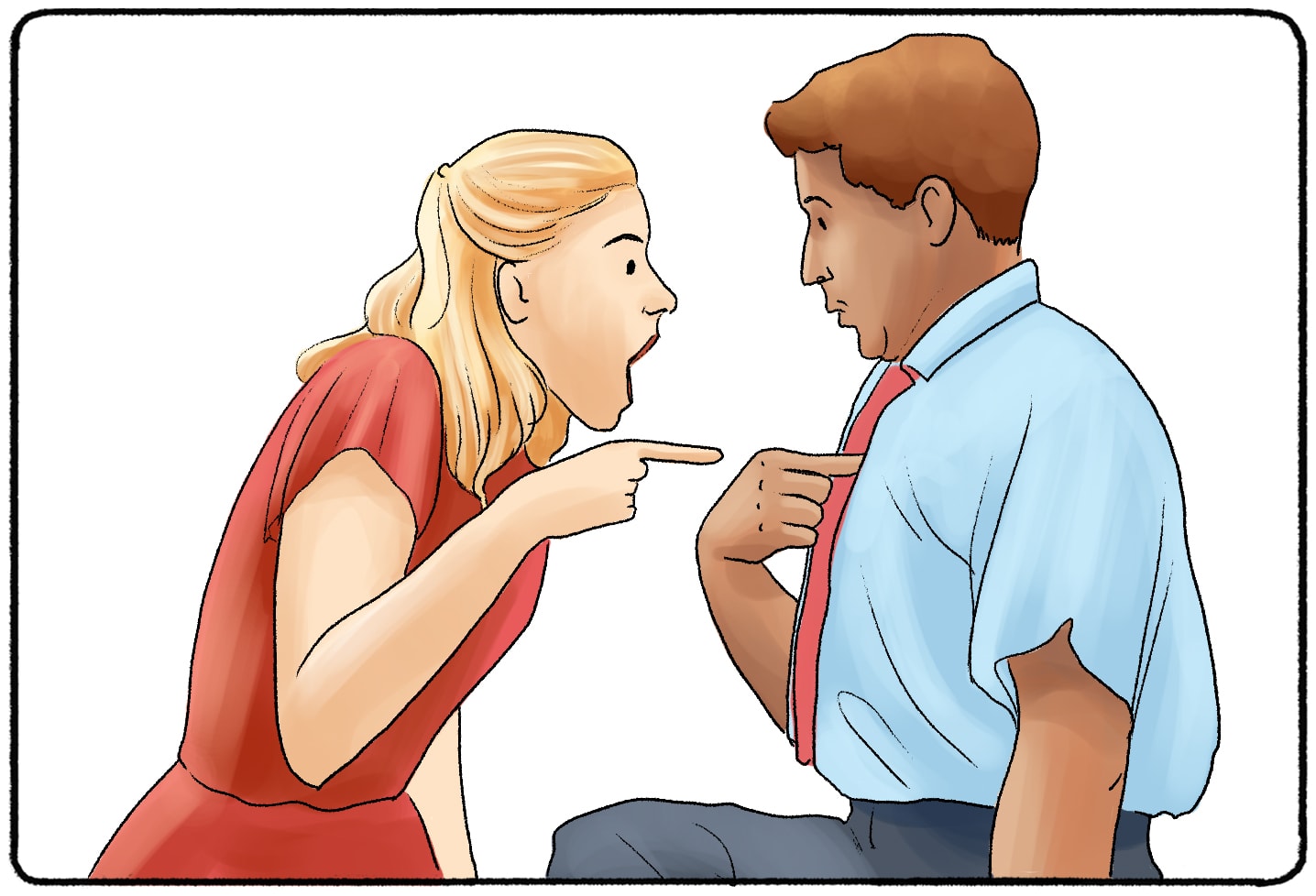Picture yourself on a bus. It’s a hot day, there is no air conditioning on, and it’s super crowded. You’re not in the best mood, and neither is anyone on the bus. No one is talking.
The door opens and a guy walks on. He decides to sit next to you and starts chatting with you. He’s really chatty. And he’s loud. It’s really not helping the vibe of the bus and people are starting to give him dirty looks. So you give him one-word answers and try to get the conversation to die down. This guy is drawing too much attention to himself, and you don’t want him to embarrass himself anymore.
Okay. Put that image away for a while. Now, picture yourself as the guy walking onto the bus. You sit down next to someone who doesn’t look so happy, but friendly enough. To lift their spirits, you start to have a pleasant conversation with them. They brush you off, give you the cold shoulder, and are rather curt. Wow, you think to yourself. This person is rude.

This situation is an example of a bias that you might not even know you have. It’s not a racial bias or a bias based on the person’s gender. It’s simply a bias based on who you are and what actions are taking place. If you are the actor (the person giving the cold shoulder,) you are likely to view the situation differently than the observer (the person doing the talking.)
What Is the Actor Observer Bias?
The actor-observer bias is a cognitive bias that is often referred to as “actor-observer asymmetry.” It suggests that we attribute the causes of behavior differently based on whether we are the actor or the observer.
If we are the actor, we are likely to attribute our actions to outside stimuli. The person in the first example was the actor. They observed the stuffiness of the bus and the people who were giving the man dirty looks. You didn’t engage in conversation because you were rude. You just wanted to save this man the embarrassment of people being upset with him.
If we are the observer, we are likely to attribute the actor’s actions to their personality. The man in the first example was the observer. He saw the person giving him the cold shoulder and assumed that it was due to them being a rude person.
The actor-observer bias is a bias because it may often lead to wrong assumptions. The person on the bus isn’t rude, and their actions had good intentions. They probably did not think that they were being rude - they may have thought they were being polite.
If we flip the actor and the observer around in this example, we’ll see just how this bias leads us astray.
Flipping the Script
Now, the man doing the talking is the actor. Before he hopped on the bus, he saw that the sun was shining and the birds were singing. Everyone seemed to be in a good mood. So when he hopped on the bus, he wanted to spread a little joy. Maybe his fellow passenger would feel better if the bus wasn’t so darn silent!
The person that he is talking to is the observer. They attribute the man’s actions (him talking on the bus) to his personality. He’s obnoxious and not self-aware. Depending on the conversation, the person may think he’s creepy or a bit crazy!
As you can see, this bias can lead to some big misunderstandings.

Situational vs. Dispositional Attribution
Humans want to find meaning in everything that happens around them. We want to know why the person on the bus brushed us off or why our partner decided to cheat. In psychology, the process of explaining someone's behavior is called attribution. We attribute behavior to various factors based on what we know at the time. Our biases, of course, also weigh in.
There are two types of attribution to be aware of:
Situational attribution occurs when you attribute someone's behavior to outside factors. If you choose to believe that a person was cursing under their breath because of bad weather or what's going on in the news, you are using situational attribution.
Dispositional attribution occurs when you attribute someone's behavior to their personality or disposition. When you choose to believe that the person on the bus ignored you because they are rude, you are using dispositional attribution.
So in other words, actor-observer bias encourages the use of situational attribution when we are the actor, and dispositional attribution when we are the observer.
Just defining these two types of attribution illuminates why this bias can be problematic. A person can brush another person off on the bus because they are rude or because they are dealing with emotions that have nothing to do with their disposition. Cultural factors may come into play. Maybe the person was nice to another person on the bus and was told off. Situational and dispositional attribution are mere attempts to make meaning out of behavior and explain why people do the things they do.
How to Avoid Actor Observer Bias
The two people on the bus may develop a strained or tense relationship because of this interaction and their biases. In a different situation, they could be great pals!
And this bias doesn’t just happen on buses, between two people, or once and a while. This bias is always affecting the way that we see the world and the attribution process. Our minds don’t always have the time, consciousness, or motivation to attribute behavior to every single factor that could be involved. (We also may not know every factor influencing a person’s behavior: the lessons they learned in school, the trauma they experienced, etc.)
So how do you avoid making an inaccurate assumption about someone or their actions? How do you avoid acting inappropriately?
Educate Yourself on Cognitive Biases
First, it’s important to be aware of this bias. Congratulations! You’re on the right track. By understanding that these biases are real, and that they have real consequences, you can begin to overcome them.

Take a Step Back
As you are making judgments about someone, take a step back. Are you the actor or the observer in the situation? Let’s say you are observing someone at a protest looting. You think, “What an animal! They are lawless and have no respect!” You’re certainly attributing the behavior of the protester to their character. Let’s take a step back. What is the protester, or the actor, seeing? They may attribute their actions to outside stimuli, to the energy of the protests, the overall cause, the frustration felt by many people of color who are tired of being shot and killed by police. How might you act if you saw the same things as the protester? If the protester becomes the observer, what might they think about your character, as you stay inside and not act?
Listen and Get New Perspectives
Everyone has an infinite number of life experiences that are separate from your own. The movies we watch, the dreams we have, and the conversations we witness all influence our behaviors. So why not take some time to gain another perspective and see what other people see. Engage in conversations with people who are not like you. Listen to their experiences. If you are confused by their reactions or behaviors, ask them about their motivations. What lessons from their parents or teachers stuck with them? How were they treated as children, and how does that influence them? Culture, expectations, and lived experiences are all outside factors that shape how we live our lives. Could you, the next time you see behavior that confuses you, dig deeper and look for those outside factors?
Other Biases to Be Aware Of
When you step back and think about actor-observer bias, you realize how quickly we make judgments about the world around us. We can be so sure that a person acts out of kindness, or love, or hate, or evil, when we don't know anything about them! Being aware of actor-observer bias can help you take a step back and look at people in a more objective light. This isn't the only bias that tends to skew judgments. As you step back and look for signs of actor-observer bias, consider these biases, too.
Moral Standing
We like happy endings for heroes and for villains to be vanquished. The world's stories always play out like that, but our minds still try to make it work! We tend to believe that "winners" reached their position through great moral standing. History has proved that this can and has been true, but not always.
Dunning-Kruger Effect
How quickly can you become an expert in basket weaving? If you don't know anything about the art of basket weaving, it may not seem so intimidating. As you start to learn more and more, you may discover that you are a lot farther from being an expert than you originally thought. That's the Dunning-Kruger Effect in action. People who have little knowledge are more confident in their skills than people who have a little bit of knowledge.
Gambler's Fallacy
This bias leads us to believe that past actions or outcomes affect future outcomes. For example, if we flip a coin and land on "heads," we are likely to believe that the next flip will result in "tails." This isn't necessarily true in gambling or in life. We may try to predict someone's behavior based on previous results. But what if a person is taking the time to change their behavior? What if outside factors change an environment, and therefore, the outcome? Patterns can predict certain behaviors, but being aware of this bias may help you think outside the box.
Optimism or Pessimism Bias
When you "see the glass half-full," you more often predict that good things will happen. "Glass half-empty" people are more likely to predict that everything is going to fall apart. These are both biases in their own right. Are you more influenced by optimism bias or pessimism bias?
Challenging Biases Can Be Uncomfortable
This process doesn’t always feel comfortable. Our minds like to take the easy road, as opposed to the road with conflicting ideas. We tend to hold a bias toward information that we already know and believe. Challenging those ideas by putting ourselves in another person’s shoes, or thinking about the other ways that we might be perceived, is not an easy task.
This may require practice. It requires mindfulness. It sometimes requires admitting that your biases have led you astray in the past, and that it’s time to change your opinions or beliefs. These changes, lessons, and practices lead to growth. By understanding biases and leaving assumptions at the door, you can become a smarter, more empathetic person.



